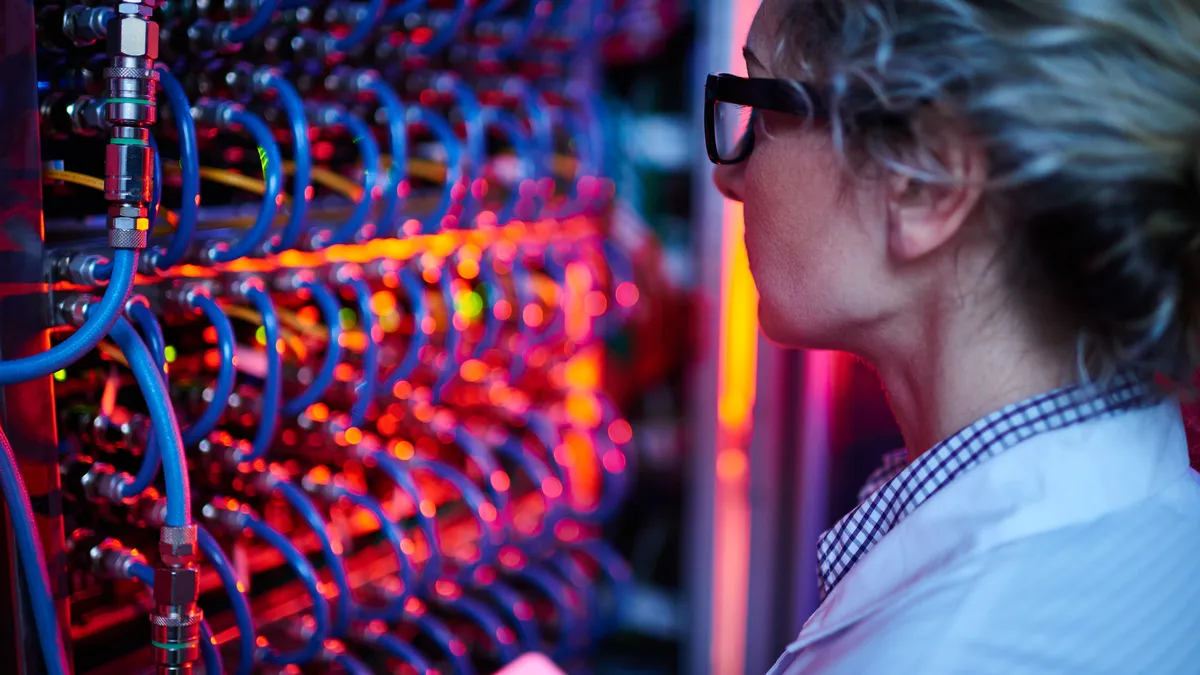Dive Brief:
- During the past decade, companies have increasingly invested in technology but underinvested in finding the intersection between humans and technology, according to Deloitte. The firm released its 10th annual 2020 Global Human Capital Trends report, "The social enterprise at work: Paradox as a path forward," May 18.
- As a result of the pandemic, essential characteristics of social enterprise — purpose, potential and perspective — can foster the integration between technology and humanity, according to Deloitte. But less than a quarter (17%) of business leaders surveyed are making "significant investments" in reskilling to support their AI strategy, and 12% are using AI primarily to replace workers. The report also found that three-quarters of respondents are expecting to reskill employees, but less than half (45%) are rewarding employees for developing new skills.
- The majority of leaders (85%) surveyed said the future of work raises ethical challenges, but just 27% have clear policies to manage these challenges. And while HR professionals have the opportunity to help organizations navigate the new normal created by the pandemic, 26% of respondents are not confident in HR's ability to step-up and lead effectively.
Dive Insight:
AI can be a valuable tool for upskilling and reskilling employees, but its use must align with an organization's culture and learning initiatives, according to experts.
Data aggregators and AI analytics platforms are "key to helping a company plot a course for reskilling and upskilling," Larry Clark, managing director of global learning solutions at Harvard Business Publishing Corporate Learning, told HR Dive in a previous interview. But first, "companies must identify the future skills that will be needed for their businesses." HR leaders can accelerate the upskilling and reskilling process by making learning opportunities more accessible, he added.
Creating a social enterprise built on purpose (a deepening of missions and values), potential (workers contributing in new ways), and perspective (in times of change, making bold decisions) can enhance a company's reinvention, according to Deloitte's report. "While technology provides a tremendous platform for reinvention, organizations need to realize that reinventing work is about building a culture where humans can thrive by creating meaning in work, as well as developing a new level of resilience and adaptability to handle disruptive events," Erica Volini, principal and global human capital leader at Deloitte Consulting LLP, said in a statement.
The report pointed to belonging and well-being as the top concerns for companies during the COVID-19 pandemic, and business leaders are creating ways to meet this challenge in remote environments. One of the surprising things about remote work is it can "make work environments more inclusive, which means you get more out of everyone, and everyone gets more out of work," Dan Pupius, CEO of Range, a software platform company, told HR Dive in an recent interview.
When Pupius' employees had conflicts with the new working conditions brought on by the pandemic, such as working with kids at home, the company implemented "windowed work." The technique is a way to make the workweek more flexible by breaking it up into disjointed work blocks, Pupius said. Blocks of time on employees' schedules are coded using different colors, which define availability and type of activity, he said.
Working remotely with this type of flexibility meant placing an intentional focus on belonging and well-being, Pupius said. "In the absence of interactions in the office we need to intentionally craft moments that encourage vulnerability — as simple as saying 'how you are feeling?' or 'what you're doing on the weekend?,' which leads to trust and in turn belonging."













